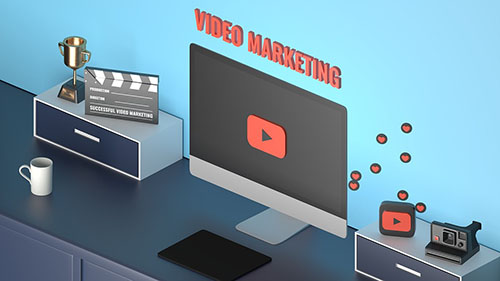Marketing is easily one of the most expensive parts of making a book, and with digital media here to stay, publishers use any digital marketing tools they can for promotion. With video media sites like Youtube reporting a 100 percent increase in consumption every year, and 90 percent of users saying that product videos are helpful in the decision process (find more information at Hubspot), reaching consumers through visual marketing is a necessity. The response to this necessity is *insert drum roll here* book trailers!
Publishers have been responding to these trends by creating trailers as part of book marketing plans, even when it’s apparent that their budget is tight, and consumers are not impressed. By not impressed, I mean forever screaming into the void “WE DO NOT WANT BOOK TRAILERS”. A quick Google search for the term “book trailers” spits out tons of articles criticizing many book trailers and praising few.
While the research shows that these product videos should be selling more books, consumers are not interacting as much as expected. For example, Penguin Random House has created a series of trailers for Vox by Christina Dalcher.
This series currently consists of five trailers that are twenty-five seconds long, and one trailer that is thirty-four seconds long. Each video, except trailer five, is set like a confessional, with different women explaining their lives before (sorry, no spoilers here!). Trailer five, however, appears to be much more like what we would consider a traditional trailer. This video series is a great sample to show the contrast of engagement these trailers are receiving, as they are each so similar in length. The views are as follows:
- Vox Trailer 1: Bedtime Stories—36K views
- Vox Trailer 2: Classroom—296 views
- Vox Trailer 3: Surgeon—143 views
- Vox Trailer 4: Group—79K views
- Vox Trailer 5—234 views
- Vox Trailer 6: Boardroom—244 views
You would think that trailer five, the one most like a trailer, would have the most engagement. However, the two with the most engagement are confessionals, and these videos are extreme outliers even when compared to each other.
A big publisher like Penguin has lots of money for marketing plans, and this trailer series was a quality trailer. Where engagement is falling short remains unknown. While many book nerds may blame the hastily put together and low-budget trailers for their distrust and dislike for the book trailer (see Paul McCartney’s Hey Grandude trailer), even trailers like the Vox series, which was heavily followed and anticipated, are missing audiences on video platforms.
Now, you may be wondering, with engagement and the general opinion of book trailers so low, why would publishers continue making them? Isn’t that money being wasted?
When it comes to marketing, the goal is to reach as many buyers through as many channels as possible. And whether they reach two hundred buyers or two million criticizers, the information is received, and publishers are still making sales.
Book trailers aren’t going anywhere, and no matter how tacky or low budget, the book is probably better than the trailer lets on. So don’t judge a book by its trailer.
Bonus: If you’re looking for an article about the usefulness of book trailers, you can find that here.

